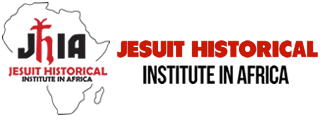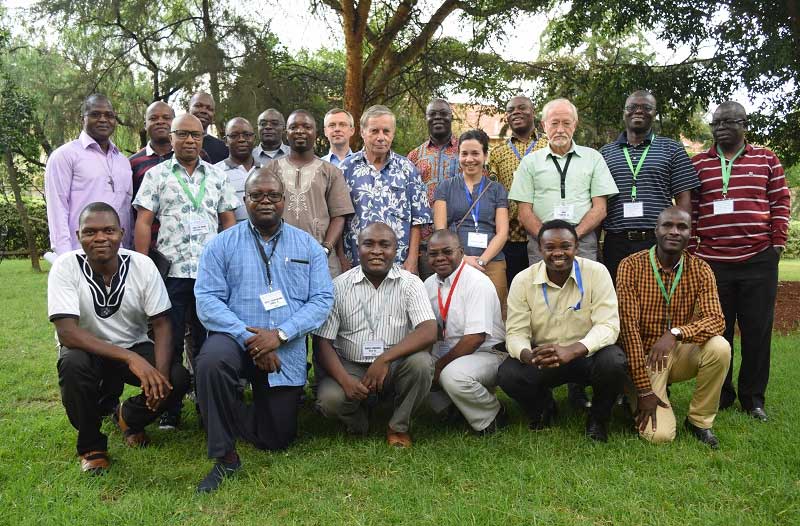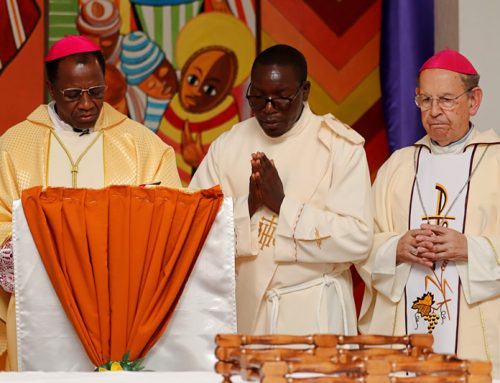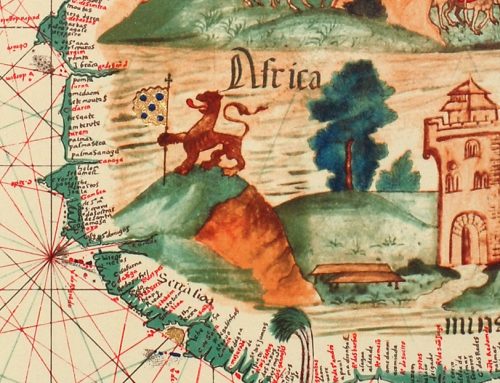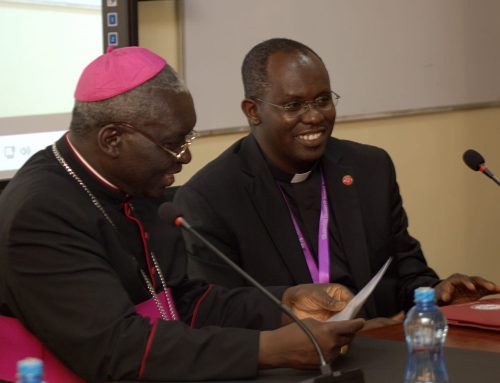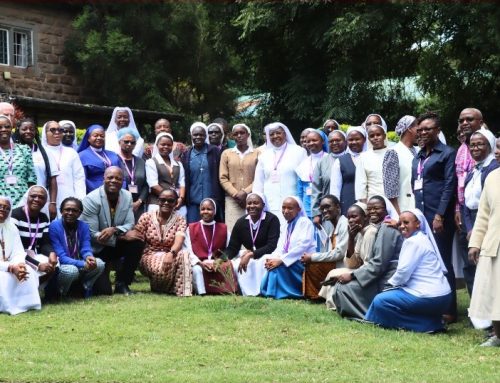From 3rd-5th March 2020, the Jesuit Historical Institute in Africa (JHIA) organized a workshop training for all archivists of the Society in the Conference and for the Socii who are tasked to supervise them. For three days, the 25 Jesuits and lay collaborators who took part in the gathering shared their experience, the kind of challenges they faced in their mission, and their hopes for the future.
Concerning the current experience, it was noticed that while most of the archivists and Socii did not have formal training in archiving, they remained zealously committed to their work and were ready to learn. Some of the attendees have different sets of expertise which, if put in common, could help improve the organization of the archives, their conservation, and their communication.
Facilitated mainly by Madame Barbara Baudry of Francophone Western Europe and Jean Luc Enyegue, SJ, Director of the Historical Institute, the workshop addressed a set of issues in Jesuit archiving, from basic definitions to the legal framework and deontology, communicability, appraisal, organization of space and documents, building and conservation, research and valorization, and ways of global collaboration to accompany those involved in the important mission of keeping the spiritual, historical, and cultural patrimony of the Society.
Practica during the workshop included a visit to the wonderful archive of the Jesuit Province of Eastern Africa (AOR), a visit to the Jesuit Historical Institute, a presentation by Robert Burhama of the latest reforms in the archives of Central Africa (ACE), and an exciting presentation of ARSI by Robert Danieluk whose experience in ARSI was an added value to the workshop.
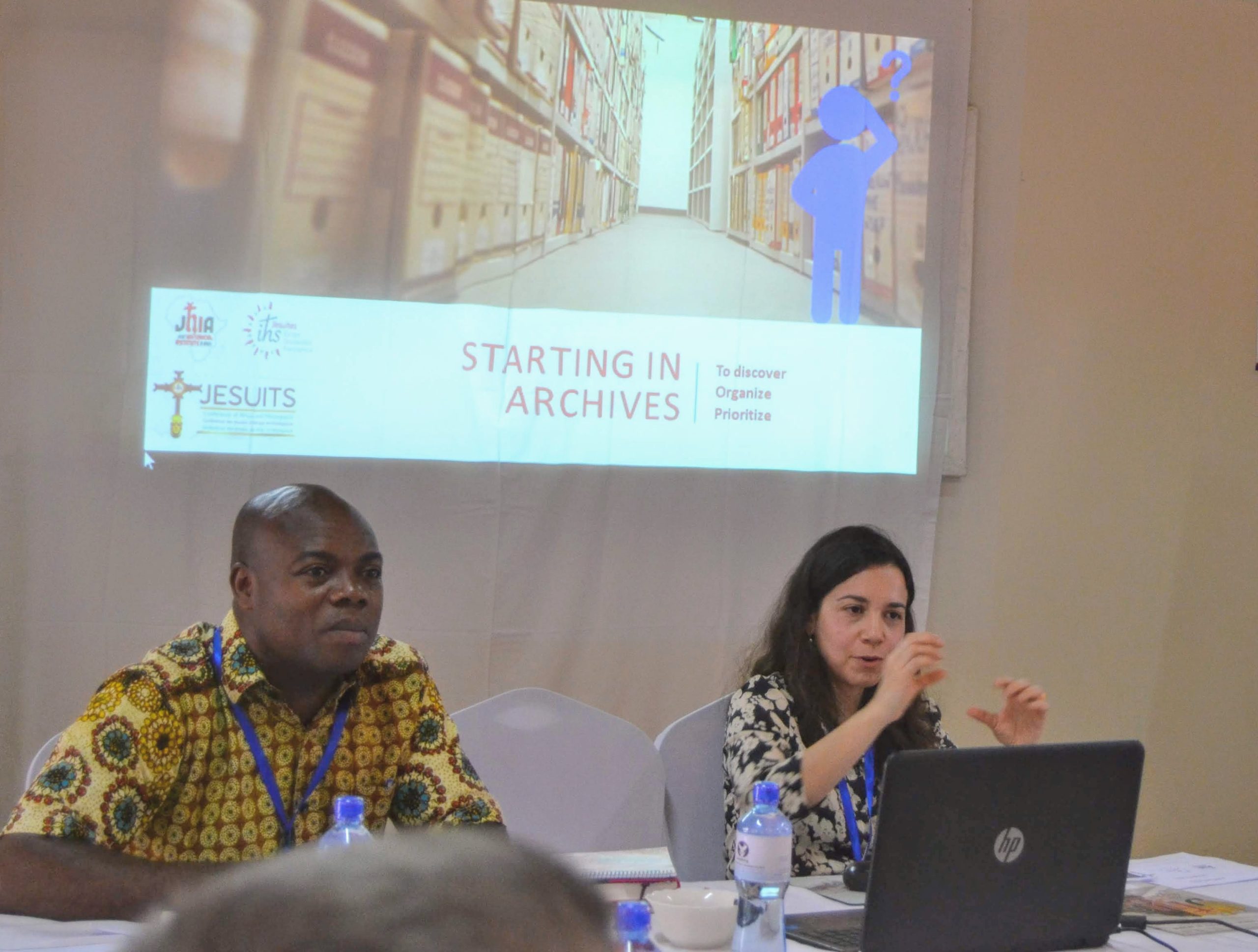
Jean Luc Enyegue SJ (left) and Madame Barbara Baudry (right)
Evaluating the workshop, participants felt newly motivated in their mission, with increased awareness of the importance of the archives for keeping the Society in good shape, its governance, and its mission. They also acknowledged having learned extensively about organization, communication, what and when to access documents, the challenges of social media, and increased concerns about privacy. They, more importantly, met each other and felt the necessity for greater synergy and networking among archivists and their supervisors, and the need to be a help to each other.
A better understanding of their mission confirmed the participants in their belief that being an archivist should be a full-time job in the Society, a profession, and an art. Recommendations were therefore met to train future archivists in the Society, to have common indexing and guideline principles for all JCAM archivists (adaptable to the specific laws and context of each country and province or region), and to keep investing in provinces, houses, and works so that archives are well kept, properly transferred, and wisely made accessible to researchers.
In his remark to the participants, JCAM President, Fr. Orobator, thanked the participants for sparing some time from their busy agendas to attend the workshop. He also thanked Barbara, JHIA, and ARSI for this initiative, and encouraged us to give continuity to this gathering. Other proposals were made to pay attention to the Jesuit tradition of record keeping and communication during the entire formation of Jesuits, and that JHIA coordinate this effort by visiting archives in the Conference, animating sessions in houses of formation, and appealing to delegates of formation and major superiors about the necessity to have younger Jesuits trained not only in archiving, but in Jesuit studies overall.
